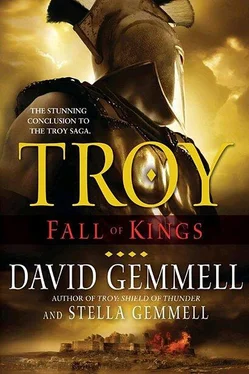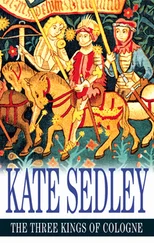Stella Gemmell - Fall of Kings
Здесь есть возможность читать онлайн «Stella Gemmell - Fall of Kings» весь текст электронной книги совершенно бесплатно (целиком полную версию без сокращений). В некоторых случаях можно слушать аудио, скачать через торрент в формате fb2 и присутствует краткое содержание. Год выпуска: 2011, Жанр: Исторические приключения, на английском языке. Описание произведения, (предисловие) а так же отзывы посетителей доступны на портале библиотеки ЛибКат.
- Название:Fall of Kings
- Автор:
- Жанр:
- Год:2011
- ISBN:нет данных
- Рейтинг книги:4 / 5. Голосов: 1
-
Избранное:Добавить в избранное
- Отзывы:
-
Ваша оценка:
- 80
- 1
- 2
- 3
- 4
- 5
Fall of Kings: краткое содержание, описание и аннотация
Предлагаем к чтению аннотацию, описание, краткое содержание или предисловие (зависит от того, что написал сам автор книги «Fall of Kings»). Если вы не нашли необходимую информацию о книге — напишите в комментариях, мы постараемся отыскать её.
Fall of Kings — читать онлайн бесплатно полную книгу (весь текст) целиком
Ниже представлен текст книги, разбитый по страницам. Система сохранения места последней прочитанной страницы, позволяет с удобством читать онлайн бесплатно книгу «Fall of Kings», без необходимости каждый раз заново искать на чём Вы остановились. Поставьте закладку, и сможете в любой момент перейти на страницу, на которой закончили чтение.
Интервал:
Закладка:
Menados stepped forward and was about to speak. Helikaon raised his hand, and when he spoke, his voice was cold. “Do not misjudge me, Mykene. If ever I see you again, I will cut out your heart and feed it to the crows.”
The men of the Trojan Horse rode southwest from Dardanos until the city of Troy came into sight. Only then did Hektor order them to make camp in a wood just outside the city. There they sat, the night cold, a bitter wind leaching the heat from their campfires, their thoughts grim. Just beyond the hill their families waited, loved ones they had not seen for more than two years.
On the brow of the wooded hill Hektor stood silently, a deep sadness clinging to his spirit. Tomorrow there would be a parade for those survivors, their entry into the city met with cheers. But the men who had given the most to this ghastly war would not ride through the flower-strewn streets or have garlands placed over their shoulders by adoring young women. The lifeblood of those heroes already had soaked into the soil of distant Thraki, their ashes scattered by the winds of a foreign land. Or they had drowned in the Hellespont or fallen before the walls of Dardanos.
Even among the survivors there were those who would not enjoy the acclaim they deserved. A victory parade, according to Priam the king, was no place for cripples and amputees. “By the gods, boy, no one wants to see the truth of war. They want to see heroes, tall and strong, striking and handsome.” The comment had angered Hektor not because it was harsh and ungrateful but because it was true.
And so he had ordered the wounded and the maimed to be taken to the healing houses after dark, ferried into the city in secret, as if covered in shame.
Hektor glanced toward the wagons recently arrived from the city. Only one had brought food for his men. The other two were filled with two thousand new white cloaks so that the crowds would not see weary men exhausted by years of battle coming home bloodstained and filthy. Instead, they would gaze in wonder at shining heroes.
His brother Dios climbed the hill to stand alongside him. “A cold night,” he said, drawing his white cloak more tightly around him.
“I do not feel it,” answered Hektor, who was dressed in a simple knee-length tunic of faded yellow.
“That is because you are Hektor,” Dios said amiably.
“No, it is because I have spent two long years in Thraki, trudging through snow and ice in the mountains. You do not have to stay with us, Brother. Go back to the warmth of your house.”
“You are gloomy tonight. Are you not glad to be home?”
Hektor stared down at Troy and thought of his wife and son and of his farms and the horse herds on the northern plain. He sighed. “I am not yet home,” he said. “How is Andromache?”
“She is well. Angry, though. She railed at Father for keeping the army out here tonight. They deserve better, she told him.”
“They are both right,” Hektor said. “The men do deserve better, but tomorrow they will revel in the adulation. The parade is important. It will help disguise our failure.”
“How can you speak of failure?” Dios asked, surprised. “You did not lose a single battle—and you killed an enemy king. I call that a victory. So do the people. So should you.”
Unaccustomed anger touched Hektor then, but he kept it from his voice. “We crossed the straits to defend the land of Thraki, to protect King Rhesos, our ally. Rhesos is dead. Thraki is lost. Our enemies gather across the Hellespont, ready to invade. All the northern trade routes are lost to us. Does this sound like victory to you?”
“I hear you, Brother,” Dios said softly. “However, you and your men went to Thraki to assist in the defense. The defeats were suffered by Rhesos, not by the warriors of Troy. Your legend is unblemished.”
“A pox on legends,” Hektor snapped. “And a double pox on the twisted realities of politics, where defeats can be melted down and recast as golden victories. The truth is that the enemy has gained control of the north. Now Agamemnon will come against us in our own lands. And he will come with a great army.”
“And you will destroy him,” Dios said. “You are the Lord of Battles. Every man around the Great Green knows this. You never lose.”
Hektor glanced at his younger brother, seeing the admiration in his eyes. Fear touched him, cramping his belly. During the battle at Carpea he had been no more than a single sword thrust from death. A well-aimed arrow or a cast spear could have pierced his throat. A slinger’s stone could have cracked his skull. Indeed, had Banokles not led a nearly suicidal charge at the enemy rear, his spirit now would be walking the Dark Road. He thought of telling his brother of the fears, of the trembling hands and the sleepless nights, and, worse, of the growing pain in his left shoulder and the ache in his right knee. He wanted to say, “I am a man, just like you, Dios. Just like every man sitting back there at the campfires. I bruise, I bleed, I age. And if I go on fighting battle after battle, then one day my luck will run out, my lifeblood with it.”
But he did not say any of that. To Dios, to the army, to the people of Troy, he had long since ceased to be Hektor the man. Now he was like tomorrow’s parade, a false yet glittering symbol of Trojan invincibility. And with every day of war that passed he became more chained to that lie.
Dios spoke again. “Wait until you see Astyanax. The boy has grown, Hektor. Nearly three years old now. And what a fine, bold child he is.”
Hektor relaxed then and smiled. “I long to see him. I shall take him on a ride through the hills. He will enjoy that.”
“I took him myself not more than a week ago. Sat him before me and let him hold the reins. He loved it. Especially the gallop.”
Hektor’s heart sank. Through the long, grim, and bloody months of warfare he had dreamed of taking the boy on his first ride, of holding the child close to him, listening to his laughter. Amid the terror and brutality of war that one small dream had nurtured him. “Was he frightened?” he asked.
“No! Far from it. He kept shouting for me to go faster. He is fearless, Hektor. No more, of course, than one would expect from a child of yours.”
A child of yours.
Save that he is not mine, Hektor thought. Masking his sadness, he looked across at the city. “And Father is well?”
Dios said nothing for a moment. Then he shrugged. “He is getting older,” he replied, dropping his eyes.
“And drinking more?”
Dios hesitated. “You will see him tomorrow,” he said at last. “Best you form your own judgment.”
“That I will.”
“And what of Helikaon?” Dios asked. “Word reached us that he sank Agamemnon’s fleet. Burned them all. That lifted the spirits, I can tell you.”
The bitter wind picked up again, hissing through the branches overhead. This time Hektor shivered, though not from the cold. He saw again the pale dead face of Helikaon’s wife, the beautiful Halysia, as her body was carried into the fortress. Hektor had heard the story of her last ride. Taking her son with her, she had mounted a huge black horse and ridden through the enemy, down the defile toward the bridge known as Parnio’s Folly. They had pursued her, knowing they had her, for the bridge had been destroyed by fire. Caught between murderous soldiers and a deep chasm, Halysia had heeled the stallion forward and leaped it across the wide gap. Not one rider had dared to follow her. She had saved her son but not herself. During the ride she had suffered a deep spear wound, and she had bled to death as Helikaon reached her.
The voice of Dios brought Hektor back to the present. “We need to discuss the route for the victory parade. You will ride Father’s ceremonial war chariot. It is being burnished now and layered with new gold leaf. It will be brought out to you before dawn. Father has two pure white horses to draw it.” Dios smiled. “You will look like a young god!”
Читать дальшеИнтервал:
Закладка:
Похожие книги на «Fall of Kings»
Представляем Вашему вниманию похожие книги на «Fall of Kings» списком для выбора. Мы отобрали схожую по названию и смыслу литературу в надежде предоставить читателям больше вариантов отыскать новые, интересные, ещё непрочитанные произведения.
Обсуждение, отзывы о книге «Fall of Kings» и просто собственные мнения читателей. Оставьте ваши комментарии, напишите, что Вы думаете о произведении, его смысле или главных героях. Укажите что конкретно понравилось, а что нет, и почему Вы так считаете.












